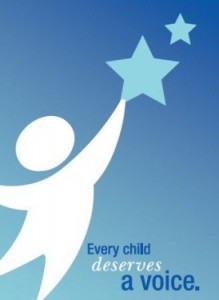 Let’s be honest, all us mommies play a dangerous game. We try really hard not to. And sometimes we do really well at it. Sometimes it’s easier at home, in our normal day to day routine, to avoid this game. But throw in a play date, a verbose younger sibling, or even a party at school, and our minds are instantly playing this dangerous game. That child is speaking in complete sentences, and my child cannot utter two words together. Heartbreak for the parent of a child struggling with Apraxia. The comparison game. It’s deadly to our happy, our self-confidence, and our peace.
Let’s be honest, all us mommies play a dangerous game. We try really hard not to. And sometimes we do really well at it. Sometimes it’s easier at home, in our normal day to day routine, to avoid this game. But throw in a play date, a verbose younger sibling, or even a party at school, and our minds are instantly playing this dangerous game. That child is speaking in complete sentences, and my child cannot utter two words together. Heartbreak for the parent of a child struggling with Apraxia. The comparison game. It’s deadly to our happy, our self-confidence, and our peace.
Because our oldest daughter is the one with delays, we didn’t struggle with the comparison game at first. We had no point of reference. Sure, we had friends who had kids, but we weren’t around them enough to realize her delays. To us, she was just perfect. Even now that her delays are realized, no amount of difference or atypical development could ever persuade me to love her less. But the comparison game still gets to my happy.
My first experiences with the comparison game came through several different play dates. I’ve got friends; they’ve got kids; we need some company; so we play-date. It’s great. Until you see your child who is OLDER than your friend’s children, but whose development is delayed compared to theirs. It’s heartbreaking. I just wanted to run back to the safety of my house where I could enjoy my child exactly where she was, without worrying about where she wasn’t.
I managed to steal back some of my happy that was squelched by the comparisons I saw during those play dates in the early years. And then my son came. It’s even harder not to compare siblings, because then the comparisons become a part of your day to day routine. They are always in front of your face. There’s always another typical child to compare your developmentally atypical child with. And of course, my son has been on the accelerated track from day one. He began verbalizing before 9 months of age, easily. He’s now 18 months old and speaking in 4-5 word sentences. It was truly very difficult at first not to compare the two of them when he seemed to be reaching milestones that his 3 year old sister had not yet mastered. There was heartbreak in seeing the ways that he was achieving when our daughter was not yet achieving. Without all these comparisons we could just enjoy Sophie. That’s what we wanted to do, and that’s what we learned to do, in spite of the many comparisons that threaten to steal our enjoyment of her.
Even if you aren’t (or are no longer) playing the comparison game regarding your children, there are many other ways in which we fall into this game. We compare our bodies with others’ bodies — are we thin enough, are we overweight, are our muscles as toned, is our hair as nice, do we dress as nicely? Is our house as big? Is our wallet as full? Are our cars as nice? Do we take as nice of vacations? Is our job as cool? There are so many ways in which we compare our lives to others. And all it does is steal away our joy and our peace, our acceptance of who we are created to be.
Because you were meant to be you, and I was meant to be me. I believe that God created me precisely and placed me in exactly this time and place, for a reason. In the same way, I believe that it is no mistake or accident that my daughter is going through the trials of apraxia. I believe that she was created exactly the way she was for a purpose. If I compare her (or myself) to someone else, I’m losing sight of the fact that she (and I) was never meant to be someone else. She was meant to be her. I was meant to be me.
I’ve learned that it’s better to focus on being the best me that I can be, and to help Sophie focus on being the best that she can be, rather than worrying about why I don’t seem to measure up to somebody else in some certain way, or why Sophie doesn’t “measure up” to the achievements of others her age. Those comparisons never get me anywhere except back to heartbreak alley. They still pop up, even though I try to avoid them. But on the whole, I’ve learned to accept myself, strengths and weaknesses, and my daughter, and my son, strengths and weaknesses included, just for who we are. It’s my job to help them be the best version of themselves that they can be, rather than to try and help them become someone else entirely. Don’t our experiences make us who we are? And would we want to be robbed of even those hard times? Because they did create in us the person that we are. In the same way, I don’t want to rob my children of experiences which will help them grow and turn them into the best version of themselves.
